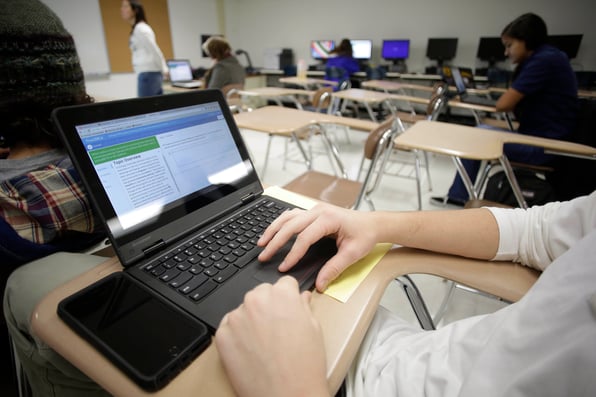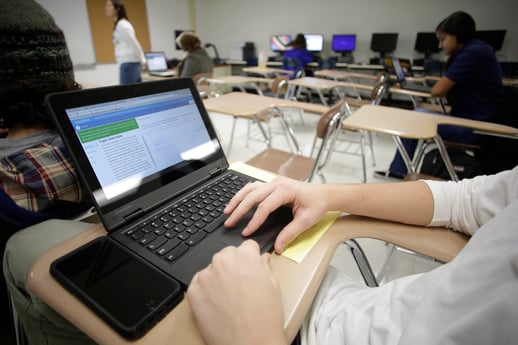
Why Students Need to Learn to Write Online to Be Successful
A look at how technology is crucial to closing the achievement gap.

In recent years, studies have shown that students in the United States lag behind their international counterparts in academic achievement. Consequently, a debate over public education ensued. Fuel has been added to the fire as studies of high school seniors by the National Assessment of Educational Progress (NAEP) — known as the Nation’s Report Card — indicate that as little as one-third of students graduating high school are ready for college.
So what’s the solution to this growing problem? Well, we could start with technology. Leveraging technology is key to raising student performance. The race to implement technology is of particular importance to closing the achievement gap, as those who lack fundamental skills – such as critical thinking, problem-solving, and writing – find it increasingly difficult to land employment in today's demanding work world.
Personalized learning is crucial to closing the achievement gap, and technology, amongst other things, has enabled personalized learning to go from a buzzword to reality. A 2015 study by the RAND Corporation found that students who use personalized learning strategies in school made greater academic progress over the course of two years than a comparison group of similar students.
However, it's not all roses. A 2016 study by the National Center for Education Statistics, an organization backed by U.S. Department of Education, indicates that computers widen the achievement gap in writing. Whereas high-performing fourth-grade students' scores improved when allowed to use computers while completing two 30-minute writing assignments, low-performing students did worse. In other words, implementation of technology seemed to have widened the achievement gap.
Look closer at the study, and this conclusion does not hold up. As others have pointed out, the results of the 2016 study noted above can easily be attributed to keyboarding skills. Those on the lower end of the achievement spectrum often have less access to computers and therefore feel less comfortable using technology delivered through a computer in the classroom. The answer is not less technology, but more training for students to increase keyboard familiarity.
We are in the computer age and need to ensure our students gain an understanding and comfort with the necessary skills to operate technology if we want to level the playing field. Therefore, students should receive such training from day one of elementary school. Imagine how frustrating it is for students who have to hunt and peck for each letter as the clock winds down on their essay time. Students need to have regular opportunities to use technology so that they are comfortable with it before we can test their skills on it.
As schools strive to raise student skills and close achievement gaps, technology can help to meet and overcome that challenge. However, administrators and teachers need to make a commitment to the technology to have it work to its fullest extent. Ensuring that the technology is properly implemented requires all stakeholders – including administrators and teachers – to be fully trained in the nuances of the technology. This will help educators become more vested in the program and ultimately better able to use the technology to engage and improve students' skills.
Part of closing the achievement gap requires teachers and administrators to recognize when there’s a gap with student familiarity with technology. By taking on simple tasks, such as introducing students to online programs and making technology a regular part of classroom instruction, teachers can empower students to express their points of view effectively and ultimately become more prepared for the world of college and career.

Larry is a freelance writer, author, and educator. He has taught English at both the high school and college level, and worked with struggling writers.
